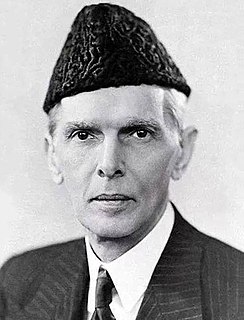A Quote by James Madison
In Republics, the great danger is, that the majority may not sufficiently respect the rights of the minority.
Related Quotes
In the South, prior to the Civil Rights movement and the 1964 Civil Rights Act, democracy was the rule. The majority of people were white, and the white majority had little or no respect for any rights which the black minority had relative to property, or even to their own lives. The majority - the mob and occasionally the lynch mob - ruled.
The very purpose of the Bill of Rights and the Constitution is to protect minority rights against majority voters. Every court decision that strikes down discriminatory legislation, including past Supreme Court decisions, affirming the fundamental rights to marry the person you love, overrules a majority decision.
The great desideratum in Government is, so to modify the sovereignty as that it may be sufficiently neutral between different parts of the Society to controul one part from invading the rights of another, and at the same time sufficiently controuled itself, from setting up an interest adverse to that of the entire Society.
I believe there are more instances of the abridgment of the freedom of the people by gradual and silent encroachments of those in power, than by violent and sudden usurpations; but, on a candid examination of history, we shall find that turbulence, violence, and abuse of power, by the majority trampling on the rights of the minority, have produced factions and commotions, which, in republics, have, more frequently than any other cause, produced despotism.
A generation may bind itself as long as its majority continues in life; when that has disappeared, another majority is in place, holds all the rights and powers their predecessors once held, and may change their laws and institutions to suit themselves. Nothing then is unchangeable but the inherent and inalienable rights of man.
Truth always rests with the minority, and the minority is always stronger than the majority, because the minority is generally formed by those who really have an opinion, while the strength of a majority is illusory, formed by the gangs who have no opinion - and who, therefore, in the next instant (when it is evident that the minority is the stronger) assume its opinion ... while Truth again reverts to a new minority.
The great majority of us are Muslims. We follow the teachings of the Prophet Mohammed (may peace be upon him). We are members of the brotherhood of Islam in which all are equal in rights, dignity and self-respect. Consequently, we have a special and a very deep sense of unity. But make no mistake: Pakistan is not a theocracy or anything like it.
...to support the Constitution, which is the cement of the Union, as well in its limitations as in its authorities; to respect the rights and authorities reserved to the States and to the people as equally incorporated with and essential to the success of the general system;... to keep within the requisite limits a standing military force, always remembering that an armed and trained militia is the firmest bulwark of republics-that without standing armies their liberty can never be in danger, nor with large ones safe.




























